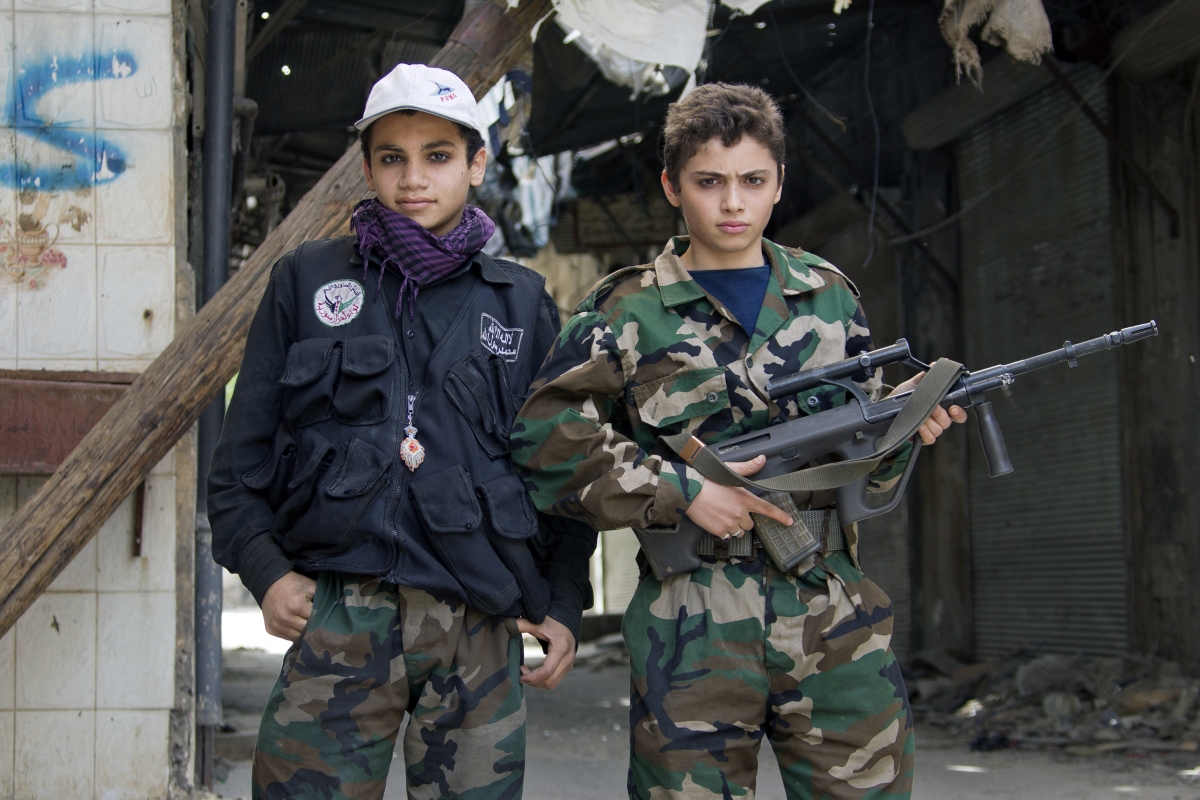As the U.S. troops leaving the Afghan land (last by 2016), China, unlike a 'back sit' diplomat, but rather a 'taking turns' one, is slowly yet boldly entering the country which has been patiently carrying out the discouraging, but internationally recognized, nickname of a "failed state". While this commentary is being drafted, new Afghan President Ashraf Ghani is shaking hands with the Chinese authorities, attending the Istanbul Ministerial Process in Beijing. The international conference is an attempt to unite regional efforts (including the U.S. as an observer nation) to address the challenges Afghanistan faces today and contribute to the (re)establishment of its economy. The latter, ideally, should have a growing and stabilizing affect on Afghan, therefore, the region's security and essential social implications.
Chinese diplomats are known for being highly effective during the official meetings. By "effective", the rising economic power implies mainly the quantity, so, the number of agreements signed all at once. October 28, 2014 was not an exception. Conducting his first official visit to China, President Ghani expected to feel valuable support from his Chinese counterpart, President Xi Jinping, and shared those views, stating that China is seen as a strategic partner not simply in long-term, but in a very long-term in Afghanistan. The symbolic exchange on peacebuilding being a priority for both sides (while protests in Hong-Kong against the authoritarian policies of Beijing have been on for few months by now) followed by the statistics which the Afghan side wanted to hear more about. The Chinese Government promised to rebuild Afghan infrastructure within next few years, develop the agriculture, and hydroelectricity, pledging $327 million in grants. In addition, President Jinping offered to provide professional training and scholarships for 3,500 Afghans to study in China. One of the major projects that were discussed included the construction of a trade route through a Wakhan Corridor as part of China's grand initiative on reviving the New Silk Road. The mountainous border that China shares with Afghanistan is about 47-mile long; however, it represents a tense zone with China's far western Xinjiang province (known for anti-government sentiments among its majority Muslim Uighur residents) on one side of the line and the route of weaponry flows (between Pakistan and Afghanistan) on the other.
Chinese Foreign Minister Wang Yi called the Beijing Declaration a true success as the participants (Azerbaijan, China, India, Iran, Kazakhstan, Kyrgyzstan, Pakistan, Russia, Saudi Arabia, Tajikistan, Turkey, Turkmenistan, the United Arab Emirates, and Uzbekistan) agreed on launching 64 development programs over the upcoming years, covering issues in, probably, all possible areas for cooperation with Afghanistan, including an estimated $1 trillion worth deals in mining mineral resources (i.e., copper) and securing major oil reservoirs. With such speed, China might bypass some foreign investors into Afghan economy. However, it would be hard to claim right now if Chinese diplomats are overstretching themselves handing cash in all parts of the developing world simultaneously.
Most recent news suggest that China continuously sees itself across the globe, as far as in Argentina, even, boosting its Central Bank reserves (saving the currency) $11 billion as part of the three-year old inter-bank agreement. Central African countries have been experiencing an investment boom as well. However, some that have dealt with Chinese Government before, agree upon limitations that the influx foresees: roads, plants, hospitals, and schools built would not necessarily create new jobs or let local populations benefit from professional training. Trade or inter-banking projects have not been guaranteeing a rise of economic stability, at least on the receivers' sides. Instead, many highlight almost a "labor invasion" by Chinese of African economies. From economic standpoint, probably, it is difficult to claim the highest "value" an average Chinese person brings to the investor, being able to work hard round-clock and without requiring much comfort.
While opening up to the world, or attempting to diversify its partners, the New Afghan Government could be suggested to be cautiously reliant on big investors like China; as national interests and economic goals of the businessmen often overshadow the humanitarian deeds. China's stake in the region is huge; however, rebuilding Afghan infrastructure in Wakhan Corridor should not necessarily guarantee stability on eastern Afghan border. President Ghani sounded optimistic about the pile of agreements signed during the Istanbul Ministerial Process in Beijing; but when the question comes to the estimation of natural resources the country possesses versus the financial size of investment deals, Afghan Government should re-visit previous business projects that did not bring long-term success and, possibly, arm itself with the lessons from the past.
From the examples Chinese investors have been giving the global investment arena so far, it would not be difficult to imagine Afghan workers sitting around and watching Chinese counterparts actually building the infrastructure in Afghanistan, meaning earning their livings. Could one call the experience as a "better" investment scenario for Afghanistan? Hopefully, not, even in the short run.
Chinese diplomats are known for being highly effective during the official meetings. By "effective", the rising economic power implies mainly the quantity, so, the number of agreements signed all at once. October 28, 2014 was not an exception. Conducting his first official visit to China, President Ghani expected to feel valuable support from his Chinese counterpart, President Xi Jinping, and shared those views, stating that China is seen as a strategic partner not simply in long-term, but in a very long-term in Afghanistan. The symbolic exchange on peacebuilding being a priority for both sides (while protests in Hong-Kong against the authoritarian policies of Beijing have been on for few months by now) followed by the statistics which the Afghan side wanted to hear more about. The Chinese Government promised to rebuild Afghan infrastructure within next few years, develop the agriculture, and hydroelectricity, pledging $327 million in grants. In addition, President Jinping offered to provide professional training and scholarships for 3,500 Afghans to study in China. One of the major projects that were discussed included the construction of a trade route through a Wakhan Corridor as part of China's grand initiative on reviving the New Silk Road. The mountainous border that China shares with Afghanistan is about 47-mile long; however, it represents a tense zone with China's far western Xinjiang province (known for anti-government sentiments among its majority Muslim Uighur residents) on one side of the line and the route of weaponry flows (between Pakistan and Afghanistan) on the other.
Chinese Foreign Minister Wang Yi called the Beijing Declaration a true success as the participants (Azerbaijan, China, India, Iran, Kazakhstan, Kyrgyzstan, Pakistan, Russia, Saudi Arabia, Tajikistan, Turkey, Turkmenistan, the United Arab Emirates, and Uzbekistan) agreed on launching 64 development programs over the upcoming years, covering issues in, probably, all possible areas for cooperation with Afghanistan, including an estimated $1 trillion worth deals in mining mineral resources (i.e., copper) and securing major oil reservoirs. With such speed, China might bypass some foreign investors into Afghan economy. However, it would be hard to claim right now if Chinese diplomats are overstretching themselves handing cash in all parts of the developing world simultaneously.
Most recent news suggest that China continuously sees itself across the globe, as far as in Argentina, even, boosting its Central Bank reserves (saving the currency) $11 billion as part of the three-year old inter-bank agreement. Central African countries have been experiencing an investment boom as well. However, some that have dealt with Chinese Government before, agree upon limitations that the influx foresees: roads, plants, hospitals, and schools built would not necessarily create new jobs or let local populations benefit from professional training. Trade or inter-banking projects have not been guaranteeing a rise of economic stability, at least on the receivers' sides. Instead, many highlight almost a "labor invasion" by Chinese of African economies. From economic standpoint, probably, it is difficult to claim the highest "value" an average Chinese person brings to the investor, being able to work hard round-clock and without requiring much comfort.
While opening up to the world, or attempting to diversify its partners, the New Afghan Government could be suggested to be cautiously reliant on big investors like China; as national interests and economic goals of the businessmen often overshadow the humanitarian deeds. China's stake in the region is huge; however, rebuilding Afghan infrastructure in Wakhan Corridor should not necessarily guarantee stability on eastern Afghan border. President Ghani sounded optimistic about the pile of agreements signed during the Istanbul Ministerial Process in Beijing; but when the question comes to the estimation of natural resources the country possesses versus the financial size of investment deals, Afghan Government should re-visit previous business projects that did not bring long-term success and, possibly, arm itself with the lessons from the past.
From the examples Chinese investors have been giving the global investment arena so far, it would not be difficult to imagine Afghan workers sitting around and watching Chinese counterparts actually building the infrastructure in Afghanistan, meaning earning their livings. Could one call the experience as a "better" investment scenario for Afghanistan? Hopefully, not, even in the short run.








